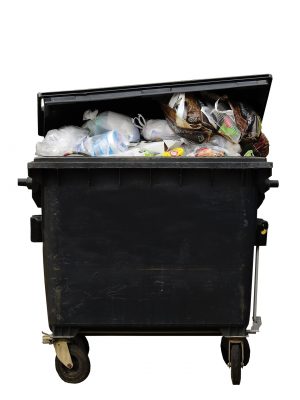×


We have detected your country as:
Please click here to go to the USA website or select another country from the dropdown list.
by: Janet Aslin, Bridges for Peace
 As the world’s population grows and becomes more industrialized, landfills groan under the weight of its garbage. Each year two billion tons of waste is generated, and that number is expected to more than double by 2050. A solution is desperately needed.
As the world’s population grows and becomes more industrialized, landfills groan under the weight of its garbage. Each year two billion tons of waste is generated, and that number is expected to more than double by 2050. A solution is desperately needed.
In our August 2018 issue of the Dispatch from Jerusalem, we reported on Israeli company UBQ Materials taking ordinary household trash and converting it into bio-pellets to be used in commercial manufacturing. According to its website, the company aims to “make household waste a renewable resource.”
Since 2013, UBQ Materials has been slowly working on a revolutionary process that has the potential to solve the world’s waste problem. At Tze’elim, a small kibbutz (collective community) located in Israel’s Negev region, the company’s plant and center of R&D activities is capable of receiving raw garbage and producing 5,000 tons of recycled, useful material. In addition, tests performed at the factory have shown that UBQ materials can themselves be recycled—up to five times!
So far the list of utilitarian and low-tech products made from UBQ bio-pellets includes pallets, sewer pipes, tiles, bricks, municipal waste bins and planters. All that is about to change as Daimler, the German car manufacturer, has announced that it is exploring the feasibility of producing “automobile parts from a thermoplastic-like material made from household waste by Israeli cleantech company UBQ Materials,” reports Israel 21c.
UBQ Materials has met every challenge from those who think the process is too good to be true and has demonstrated the viability of its discovery. The company is currently in the process of establishing its first overseas plant to export this technology. It may be that a world where useless trash becomes a renewable resource is right around the corner.
Photo Credit: Bru-nO/pixabay.com
All logos and trademarks in this site are property of their respective owner. All other materials are property of Bridges for Peace. Copyright © 2025.
Website Site Design by J-Town Internet Services Ltd. - Based in Jerusalem and Serving the World.